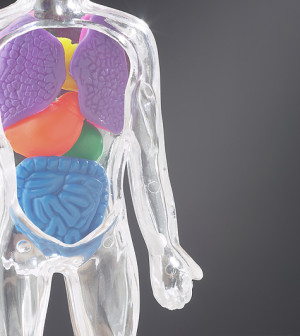- 7 Best Breads for Maintaining Stable Blood Sugar
- Gelatin vs. Collagen: Which is Best for Skin, Nails, and Joints?
- The Long-Term Effects of Daily Turmeric Supplements on Liver Health
- Could Your Grocery Store Meat Be Causing Recurring UTIs?
- Are You Making This Expensive Thermostat Error This Winter?
- Recognizing the Signs of Hypothyroidism
- 10 Strategies to Overcome Insomnia
- Could Artificial Sweeteners Be Aging the Brain Faster?
- Techniques for Soothing Your Nervous System
- Does the Water in Your House Smell Funny? Here’s Why
FDA Orders Studies on Contaminated Endoscopes Tied to Illness Outbreaks


Recent outbreaks of life-threatening infections linked to endoscopic devices called duodenoscopes led the U.S. Food and Drug Administration on Monday to order manufacturers to conduct postmarket studies of the devices in health care facilities.
The goal is to learn more about how the scopes are cleaned and prepared for reuse in actual health care settings, the FDA said. Duodenoscopes are flexible, lighted tubes threaded through the mouth, throat and stomach to the small intestine, and used to diagnose and treat problems in the liver, pancreas and gallbladder.
Last February, the FDA issued a warning that duodenoscopes are hard to clean even when health care workers follow manufacturers’ directions. In March, the FDA issued final recommendations for the cleaning and sterilization of duodenoscopes.
That action came shortly after reports that duodenoscopes contaminated with a “superbug” (drug-resistant bacteria) caused seven serious infections and two deaths at Ronald Reagan UCLA Medical Center in Los Angeles. Shortly after that, similar infections linked to the scopes were reported at Cedars Sinai Hospital in Los Angeles.
Since that time, the FDA has been working with the three manufacturers of duodenoscopes to improve the safety of the devices, including reviewing the companies’ cleaning instructions, looking at ways to improve the disinfection process and considering design changes to make the scopes easier to clean.
The findings from the postmarket surveillance studies may help identify additional ways to reduce risks associated with the scopes, such as new labeling with different cleaning/sterilization instructions or new regulations to protect patient safety, the FDA said in a news release.
“These studies will provide critical information about the effectiveness of current reprocessing instructions and practices that may provide additional information to inform the FDA’s actions to protect the public health and help reduce the risk of infections,” said Dr. William Maisel. He is deputy director for science and chief scientist at the FDA’s Center for Devices and Radiological Health.
The three companies that sell duodenoscopes in the United States — Olympus America Inc., Fujifilm Medical Systems USA, Inc., and Hoya Corp. (Pentax Life Care Division) — have 30 days to submit postmarket surveillance plans to the FDA, the agency said.
The plans must outline how the companies will conduct the studies in order to find out how well health care workers follow instructions to clean and disinfect the scopes between use in different patients, and to learn more about the rate of contamination associated with the devices.
More information
Read more about duodenoscope cleaning from the U.S. Food and Drug Administration.
Source: HealthDay
Copyright © 2026 HealthDay. All rights reserved.










